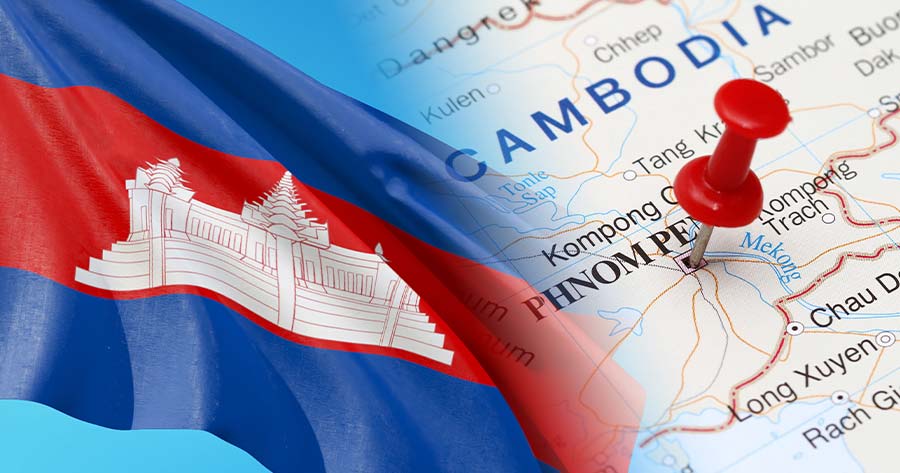Investigation Procedures for Offenses under the Competition Law and Incentives for Reaching a Negotiated Settlement
On 4 November 2022, the Ministry of Commerce of Cambodia issued two new regulations, namely, Prakas 226 on the Formalities and Procedures of Inspection and Investigation under the Law on Competition (“Prakas 226”) and Prakas 227 on the Conditions and Procedures of Negotiated Settlement under the Law on Competition (“Prakas 227”).
These regulations provide details of the procedures for enforcement of the Law on Competition, which was adopted in 2021 (“Competition Law”). The key aspects of Prakas 226 and Prakas 227 are outlined below.
Investigation Procedures
Pursuant to the Competition Law and Prakas 226, the Competition Commission of Cambodia (“CCC”) may initiate its own investigations or receive complaints from other regulators or any other persons (regardless of whether personal interests are involved).
Upon authorization of the CCC, the Consumer Protection Competition and Fraud Repression Directorate-General (“CCF”) will conduct a preliminary examination to determine whether there is a reasonable basis to suspect that an agreement or actions are likely to prevent, restrict or distort competition and report its conclusions to the CCC. If the CCC determines that an investigation is required, the CCC shall then establish a committee to review documents and hear statements from both the investigating officer and the persons under investigation (“Committee”). The Committee will appoint a CCF official to act as investigating officer to conduct the investigation.
At the conclusion of the investigation, the Committee will then submit a report to the CCC who will issue its decision on the case.
Rights of the Investigating Officer and Persons under Investigation
In conducting the investigation, investigating officers have the right to:
(1) search the premises of the persons under investigation or related persons, with or without consent from the persons under investigation;
(2) seize or collect equipment or objects, which are necessary to the investigation, and instruct persons in the premises to provide the relevant documents or information;
(3) summon persons under investigation or related persons to appear for an interrogation;
(4) command persons under investigation or related persons to provide and prepare related documents and information; and
(5) through a decision of the CCC, request cooperation from ministries, other institutions or competent regulators, as well as foreign competition institutions.
Based on Prakas 226, persons under investigation have the right to a defense through the submission of a statement of defense and to respond to claims and statements made by the investigating officer. They must also be given prior written notice of at least fifteen (15) business days if summoned for an interrogation. Upon completion of questioning, the investigating officer must prepare a record of the responses and the record must be read to the interrogated person.
Prakas 226 does not provide for a person under investigation by the investigating officer to have the right to counsel or a lawyer during the investigation or that the investigating officer is obligated to wait for the arrival of such person’s lawyer (or in-house counsel).
There is no protection from review or seizure on the basis of legal privilege under this Prakas. However, to the extent such documents contain confidential information, the investigating officer is subject to the confidentiality protections under this Prakas and Article 22 of the Competition Law.
Obligation to Cooperate
According to Prakas 226, persons under investigation and related persons shall cooperate with the investigating officers throughout the course of the investigation.
In particular, it is not permitted to refuse to respond to questions or destroy or conceal any documents/information, which is relevant or is part of the investigation, or refuse to conduct actions required for performance of the investigation. Those who do not comply with these obligations may be criminally liable in accordance with the Criminal Code of Cambodia.
Negotiated Settlement
Persons under investigation may submit an application to the investigating officer seeking a negotiated settlement under the procedures of Prakas 227.
The negotiation may take place through meetings or via written communications between the investigating officer, the person under investigation and any persons who may be affected by the suspected anti-competitive agreements or activities.
Incentives
Under Prakas 227, the CCC may consider reducing monetary fines for persons under investigation who have co-operated and achieved a negotiated settlement.
The following incentives are offered to such persons depending on the timing of their voluntary confession:

The adoption of these implementing regulations suggests that the Kingdom of Cambodia is preparing for the enforcement of the Competition Law. We suggest that you review the practices, agreements and policies within your company to determine whether you may be conducting any activities that prevent, restrict or distort competition or otherwise conduct acts that are prohibited under the Competition Law. We can also assist with preparation for any ‘dawn-raids’ by the relevant regulator.
Should you have any queries on the matters mentioned above, please contact DFDL at [email protected].




